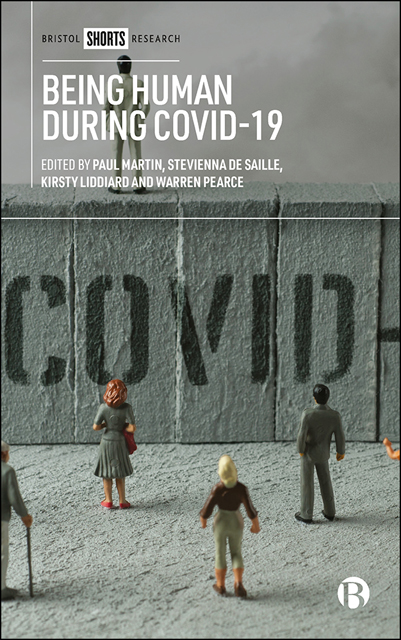twelve - ‘I’ve Got People’s Spit All over Me!’: Reflections on the Future of Life-SavingStem Cell Donor Recruitment
Published online by Cambridge University Press: 13 October 2022
Summary
Introduction
Like other kinds of tissue donation, stem cell donation systems rely on framing humans as reciprocal, prosocial agents engaging in the communitarian, altruistic act of donation. COVID-19 highlights how, particularly in racially minoritized communities, interpersonal contact in trusted encounters and spaces is a key part of the normative work of encouraging stem cell donation. Thinking through this as an example of how we as humans often need to be co-present to generate affective ties, build new communities and counter forms of inequity and mistrust, this chapter offers an illustration of how the pandemic disrupted this key aspect of being human.
Stem cell donor registries – used to source donor stem cells for treating blood cancers – are currently insufficiently ethnically diverse, meaning that racially minoritized patients in the UK have poorer odds of locating a suitable donor. New donors are registered at in-person events organized to target potential racially minoritized donors. Registrants provide saliva to be tissue typed and placed on the registry. This saliva, full of biotechnological potential, is now also a recognized vector for COVID-19 transmission. As the world reopens, it is hard to imagine that these busy events where saliva-saturated swabs swap hands will restart with the same enthusiasm.
This chapter explores the value of these in-person events in generating registrations amongst racially minoritized people who, importantly, are recruited with less success through the digital routes that recruitment work is reliant upon during pandemic restrictions. First briefly contextualizing stem cell transplantation and its attendant racial disparities in access in the UK, the chapter then describes the saliva-orientated work of recruitment. It then reflects on the potential consequences of its cessation.
Stem cell transplantation and racial inequity
Since the 1970s, stem cell transplants have emerged as a wellestablished and increasingly common treatment (see Passweg et al, 2018). If a patient cannot find a matching donor in their family, their clinician can call upon a global network of registries connecting databases of volunteers to locate donors for their patients. These donors will have initially provided their tissue type via saliva, possibly at a recruitment drive, from which they were logged on a stem cell registry awaiting the rare occasion that they – out of nearly 40 million world-wide donors – might be a patient’s genetic match.
- Type
- Chapter
- Information
- Being Human during COVID-19 , pp. 100 - 107Publisher: Bristol University PressPrint publication year: 2022



